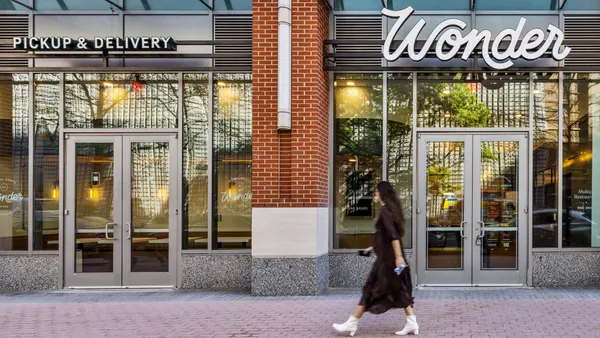Editor’s note: This story has been updated with comment from Uber Eats.
Dive Brief:
- The Seattle Office of Labor Standards has reached a $15 million settlement with Uber Eats over alleged violations of the city’s Independent Contractor Protections and App-Based Worker Minimum Payment laws, according to a Tuesday announcement.
- Uber Eats will give back pay to upwards of 16,000 workers impacted by the alleged violations.
- The OLS claimed that Uber Eats messaging around Boost Multipliers misled workers about their potential earnings and that the company underpaid workers for distance traveled on orders that were eventually canceled. Uber denied the allegations.
Dive Insight:
The settlement marks a win for Seattle’s regulatory authorities, which have sought to enforce the city’s independent contractor and minimum pay laws since they took effect. Those laws were part of a tide of regulations passed by major municipalities in the first years after the COVID-19 pandemic that forced app-based delivery aggregators to raise pay, alter fee structures and change their operations.
Those laws have been vigorously contested by the aggregators. Seattle’s ABWMP drew significant lobbying opposition from DoorDash, while both Uber Eats and DoorDash imposed new fees in the market after the law took effect.
The city alleged specifically that Uber Eats failed to inform workers that Boost Multipliers only applied to a portion of earnings and that the pay estimates Uber Eats showed to workers before accepting deliveries already factored in the Boost Multipliers. The OLS also said Uber Eats sometimes paid workers less than the amount shown on pre-work offers, which would constitute a violation of the ICP rule requiring firms to pay agreed upon wages and to inform workers of pay rates before the beginning of a gig.
Uber is “committed to continuing to improve the courier experience by giving workers clear dependable information about their pay and opportunities to earn,” a company spokesperson wrote in an emailed statement. “Seattle is one of the most highly regulated gig markets in the country, and we’ll keep working with policymakers, restaurants, and couriers to make sure our platform supports flexibility, fairness, and reliable earnings.”
Peter Kuel, the president of the Drivers Union, a labor group that advocates for rideshare and app-based delivery workers, said the settlement showed the power of Seattle’s regulatory changes.
“This is exactly the kind of systematic underpayment of gig workers that these two ordinances were designed to protect against, and I'm glad the OLS process can help workers be made whole. The combination of good legislation and workers organizing and fighting for what's right is our only chance at fairness,” Kuel said in a statement.













